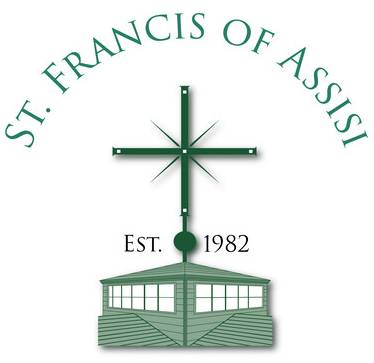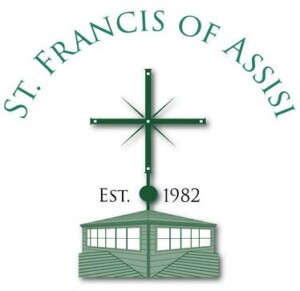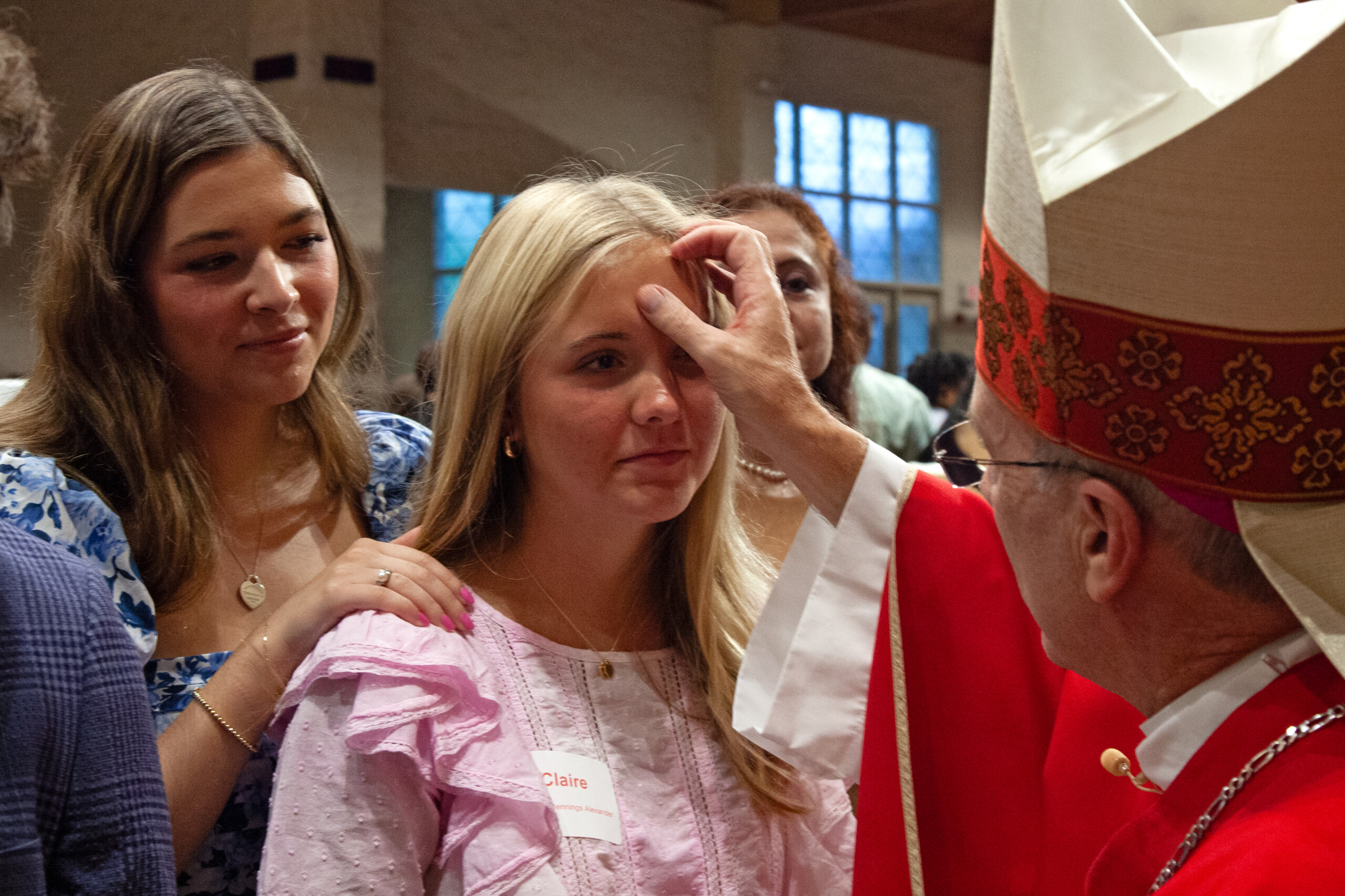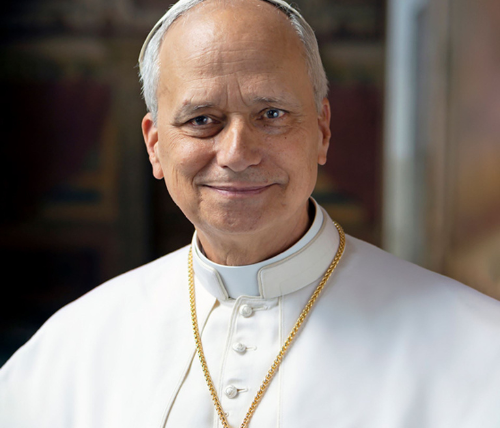Did you know that it was the belief in the great importance of the Eucharist by Pope Pius X (Pope from 1903-1914) that led to the First Eucharist being moved to a younger age and flipped with the Sacrament of Confirmation? According to Tim Hetzel, Director of Youth and Young Adult Ministry at St. Francis, whose undergraduate thesis was on Confirmation, says, ”It was Pope Pius X who saw people weren’t receiving communion; they would receive it maybe once or twice a year, an Easter and Christmas kind of thing. Even if they would go to Mass, they didn’t feel worthy to receive it, or it wasn’t really part of the culture to receive it.” That broke his heart because he believed the Eucharist was so important to the faith that people should receive it regularly. Accordingly, and he was very smart, said Tim, “He said, ‘I’m going to change the age that people receive their first communion from sometime in adolescence to the age of 7.’”
“Well,” you may ask, “what age did they use to receive their First Eucharist?” Great question! Tim points out, “First Eucharist used to be in adolescence, in most of the Western world; so like 11, 12, 13. And what Pope Pius’s thought was, and it was very smart, and I think we see the results of it now, is if we get the kids to receive communion and build that habit up with the younger children, they will continue to receive, and they’ll teach their kids to receive. Here we are today, and it’s worked. The problem was, when he made that change, he didn’t say anything about Confirmation.”
Until 1910, the order of the sacraments of initiation was baptism, Confirmation, and First Eucharist. Confirmation used to be before the First Eucharist. Eucharist was the final sacrament of initiation, which is interesting because, traditionally, when you get initiated into something, you are “in,” as with baptism and Confirmation; one and done. Eucharist is different. You receive Eucharist, but you are constantly being initiated because you can have it weekly. It was the last sacrament of initiation, but it’s also the only one that can be repeated. “So,” asks Tim, “ where does that leave Confirmation?” It’s a little bit backward because it was always supposed to be baptism, Confirmation, Eucharist, but here we have it post-Eucharist.
“What Confirmation is,” says Tim, “if you read the catechism and all of the theology of Confirmation, it is a sacrament of strengthening. And so baptism cleanses us from sin and is our first step into the Christian life. Confirmation further strengthens us and completes the baptismal grace for the life of a Christian. So those two sacraments are closely connected. So now, what has happened post-Vatican II, starting in the late 1960s and early 1970s, we’re still dealing with this Confirmation rite after Eucharist, which is ‘wonky.’” People were confused as to what it meant. “People started equating it to like the bar mitzvah or the sacrament of maturity,” Tim adds, “and that’s not necessarily a bad thing, but it’s also not necessarily what the sacrament is for. It’s not the same thing.”
As Director of Youth Ministry, Tim says, “I try to aim for talking about the strengthening that Confirmation is. You’ve already had the gifts of the Holy Spirit, but it’s a time to think about what gifts you’re already strong in and give thanks to God for those gifts, and consider what gifts you feel like you need some strengthening in. Confirmation is when you ask God for the strength to fulfill your calling. God will give you gifts to strengthen your faith, and Confirmation is a prayer for the strength to live the life that God wants for you. That’s what we focus on in our Confirmation prep.” To better explain it, Tim says he often uses a sports analogy because everyone likes sports. “So if you start playing basketball, for instance, you will learn all about the sport in general. You learn how to dribble, how to shoot, the rules, et cetera, et cetera. That’s like baptism. You learn the basics.”
“But then.” Tim adds, “Your coach is going to see where your gifts are, and he’s going to put you in a particular spot on the court. And that’s like your Confirmation. Now you’re going to train to be a forward or play a particular role, and you’re going to develop a particular skill set to use in a game for that position. And that’s like Confirmation! You are building strengths for a particular purpose that is unique to you.” “Then, of course, you need to keep practicing and keep playing and practicing plays with your team,” says Tim. “That repetition and refining of your gifts, through practice, is like the Eucharist.” “The grace of strengthening to be the kind of person that God wants you to be, and to be able to be a faithful person. You already have those gifts in your baptism, and you’re being nourished, but Confirmation is just an extra strengthening, again, to strengthen yourself to be that person God needs you to be.”
During Confirmation prep, Tim does talk about the three offices that we all receive when we are baptized. “You actually have a responsibility to be a priest, a prophet, and a king,” explains Tim. “Confirmation then allows you, or strengthens you, to fulfill those roles in a way that makes sense for you.” During Confirmation preparation, we talk frequently about baptism, and there’s a lot of talk about the gifts of the Holy Spirit that you already have and are going to use for your whole life. “We ask them to keep their eyes open for them. Of course, we also stress the impact of the Eucharist as the last sacrament of initiation; maybe not chronologically, but theologically. It makes all of us Confirmation teachers a little bit ‘out of sorts’. Again, going back to the sports analogy, you have a different role now with your Confirmation. You’re practicing your faith in a different way. The Eucharist is nourishment, but now it can be seen as strengthening you for the specific role that God wants for you.”
“We focus on how to be a disciple,” Tim emphasizes. ‘What is God asking you to do?’ “I really pull from two particular passages in the Gospels. Matthew 25, which is the separation of the sheep and the goats. And then the Luke passage, where Jesus is in the synagogue and he says, ‘I come to give sight to the blind and free the oppressed. And this passage is fulfilled in your midst.’ And people got furious at him for doing that. Those are two keystone moments in the scriptures that guide how we’re supposed to live our lives. So I just challenge the youth and the adults to use those passages as a way to answer the questions, ‘What am I supposed to be doing?’ and ‘What am I supposed to be doing in light of these passages to be a disciple of Christ?’”
Tim emphasizes that Confirmation is an initiation, not a test. “When the Bishop does a Confirmation, he meets with the kids before,” says Tim. “Of course, the kids are terribly nervous. They think, ‘What is the point of the meeting other than they should know the answers to all these basic questions?’ Our bishop, Bishop Luis, is not super interested in making sure they know everything. What he wants to know is, what brought them here? Why are they interested in being confirmed? How do they feel about this? What are they feeling right now at their Confirmation? I think this is an exciting way to engage with them because he is interested in their relationship with Jesus. And I think that’s what his questions really get to.” It is also the best way for those being confirmed to realize that God has a unique role for them. That is what Tim and his team emphasize: the personal role Jesus has for you through your faith!







